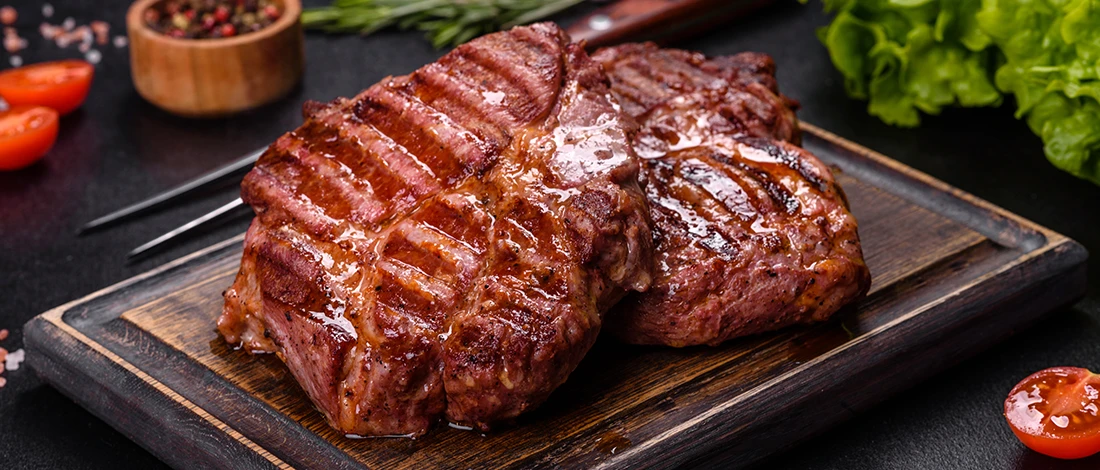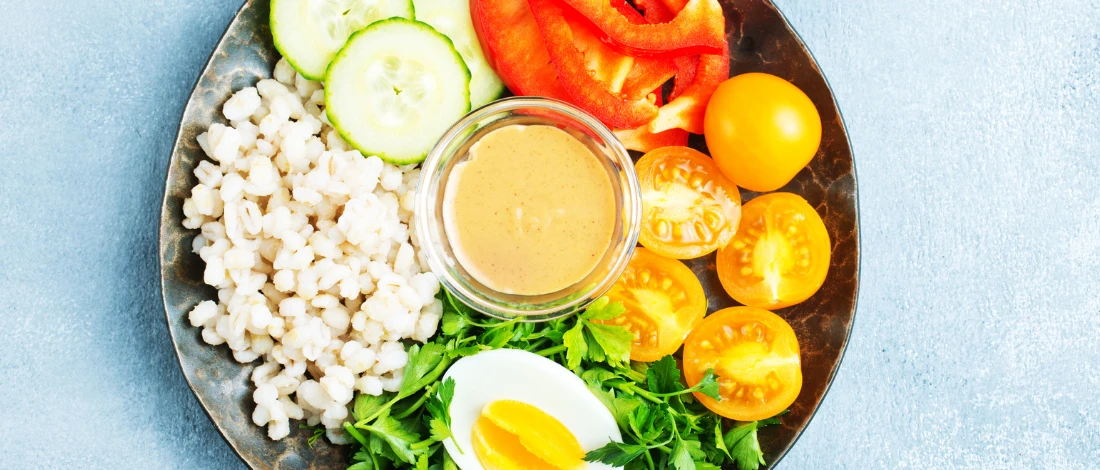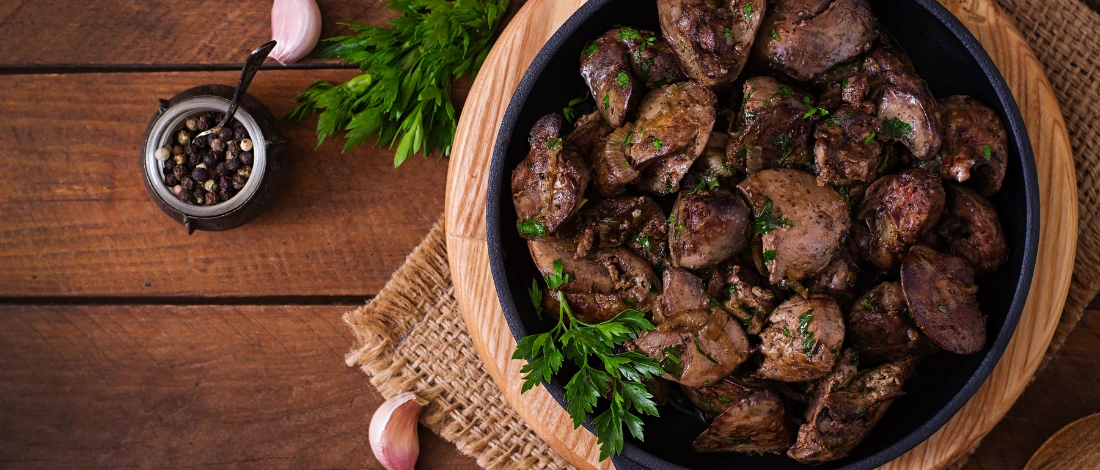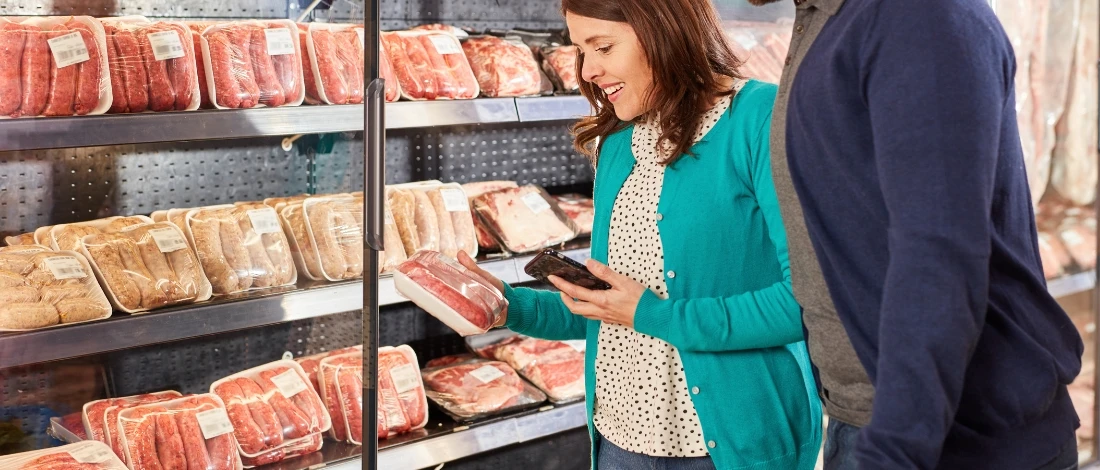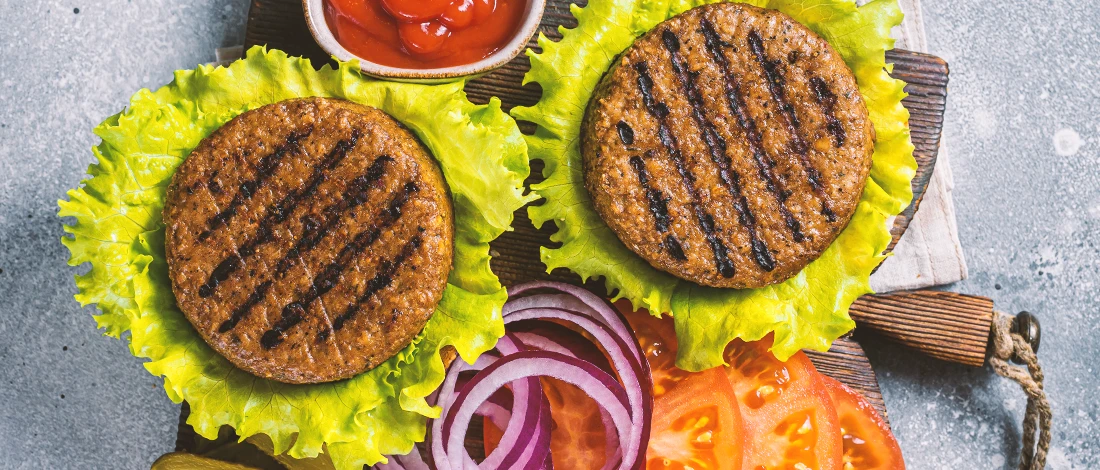Five years ago, I made a significant dietary pivot—from a year of plant-based eating to an all-meat diet.
This transition wasn't impulsive; it was backed by months of meticulous research and consultations with my nutritionist, weighing the benefits and drawbacks of plant-based versus meat-centric diets.
Today, I've prepared for you a breakdown of both dietary approaches, sharing the scientific insights I've gathered along with personal anecdotes from my own experiences.
Whether you're contemplating a dietary shift or simply curious about the pros and cons of these contrasting lifestyles, this guide aims to offer a balanced perspective to help you make an informed decision. Carnivore Style’s team is here to help you navigate your journey and make the best choices for your health.
Quick Summary
- The carnivore diet, focusing on animal-based protein, can aid in fat reduction and improve body mass, while the vegan diet, based on plant-based meals, can help prevent diseases like diabetes and certain types of cancer.
- The carnivore diet may lack dietary fiber and cause high cholesterol, while the vegan diet may lack essential nutrients like protein, zinc, and vitamin B-12 found in animal products.
- Both diets have their pros and cons, and the choice between them depends on individual health goals, dietary preferences, and nutritional needs.
What Is a Carnivore Diet?
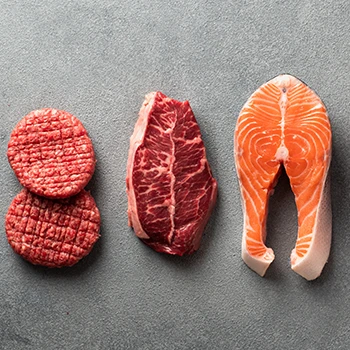
A carnivore diet is a type of elimination diet that rigorously excludes plant-based meals and limits food intake to animal-based protein.
The carnivore diet is plant-free and animal-based, similar to the Paleo diet.
On a carnivore diet, however, you will not consume any berries, fresh vegetables, nuts, or seeds, as you would on a Paleo or keto diet.
Your grocery list will be simple and straightforward: grass-fed organ meat, seafood, and high-fat meats.
You may also consume animal products such as egg whites and bone soup, but not dairy.
In theory, eating only meat implies you'll be on a low-carb diet. As a result, the carnivore diet would be a distinct sort of ketogenic diet.
I found out that many individuals believe that a "meat diet" is the golden standard of long-term wellness and vibrancy.
These people are as passionate about meat consumption as vegans are about plant foods.
That seems strange, doesn't it? However, after learning more about the carnivorous diet, one must wonder if scientific facts support the medical benefits.
"The carnivore diet is a way of eating that includes only animal foods, such as meats, fish, eggs, and dairy. It does not prescribe specific amounts of protein and fat, and simply excludes carbohydrates."
- Ariane Hundt, M.S., Nutrition Coach
Types of Carnivore Diet

There are three primary carnivore diet variants, categorized as follows:
- Hardcore carnivore: The fundamentals of the diet, sometimes referred to as "carnivory" or perhaps the "zero-carb diet," are straightforward: consume only animals.
There's really no food scheduling, portion control, or macronutrients. When you're feeling hungry, you eat, and when you feel full, you stop.
- Standard carnivore: The diet removes all plant-based meals and replaces them with meat, eggs, fish, and small portions of low-lactose dairy items [1].
- Keto-carnivore: This is a diet that promotes animal meat intake [2].
Hardcore carnivore has been the most stringent of the three kinds, while keto-carnivore has been the most lenient.
I discovered that most people, including myself, lie halfway between the regular and keto-carnivore diets.
Foods to Eat on a Carnivore Diet
The carnivore diet solely permits animal products and avoids all other meals.
A carnivore diet follower can consume the following foods:
- Meats include beef, chicken, lamb, turkey, and pork.
- Salmon, crab, mackerel, lobster, sardines, herring, tilapia, and other fish.
- Additional animal products include eggs, fat, bone marrow, bone soup, etc.
- Dairy with low lactose content (in tiny amounts): rich cream, butter, and hard cheese.
- Water.
Some diet followers claim that salt, pepper, and spices with no carbohydrates are allowed.
Read More:
Foods to Avoid on a Carnivore Diet

The carnivore diet excludes all foods that don't originate from animals.
Foods that are prohibited include:
- Broccoli, green beans, cauliflower, peppers, potatoes, and other vegetables
- Apples, grapes, bananas, kiwis, oranges, and other fruits
- Dairy with a high lactose content: milk, cheese, yogurt.
- Beans, lentils, and other legumes
- Almonds, pistachios, pumpkin seeds, nuts, and sunflower seeds.
- Grains include rice, quinoa, wheat, pasta, and bread.
- Liquor, beer, wine, and other alcoholic beverages
- Sugars include table sugar, brown sugar, and maple syrup.
- Other drinks besides water: are coffee, fruit juice, tea, and soda.
What Is a Vegan Diet?
A vegan diet is a plant-based diet that focuses on reducing meat intake. This diet excludes all animal foods, including beef, eggs, and dairy [3].
Some individuals avoid consuming honey as well. Becoming a vegan is a nutritional decision for some, whereas it is a personal decision for others.
Vegan diets are often high in fruits, veggies, beans, nuts, and grains.
Consuming a mix of these foods will supply a variety of essential vitamins, plant protein, healthy fats, and minerals [4].
However, individuals adopting this diet must start taking care to receive vital elements found in animal products. Iron, vitamin B-12, protein, vitamin C and D, and calcium are among these nutrients [5].
Types Of Vegan Diet

Vegan diets are classified into the following categories:
- Dietary vegans: These are people who avoid eating animal products but prefer to utilize them in other things such as clothes and cosmetics.
- Whole-food vegans: They choose a diet high in whole foodstuffs such as fruits, legumes, vegetables, nuts, whole grains, and seeds.
- "Junk food" vegans: Many rely significantly on processed vegan products like vegan meats, sweets like Oreo cookies, fries, frozen meals, and non-dairy ice cream.
- Raw-food vegans: They consume exclusively raw or cooked foodstuffs at temperatures under 48°C.
- Low-fat raw foods vegans: This subcategory, sometimes referred to as fruitarians, avoids high-fat foods, including almonds, coconuts, and avocados, in favor of fruit. They can consume modest quantities of other vegetables on occasion.
Foods to Eat on a Vegan Diet
You can eat plant-based meals on a vegetarian diet, such as:
- Vegetables and fruits
- Legumes like peas, lentils, and beans
- Seeds and nuts
- Pasta, rice, and bread
- Dairy alternatives like soymilk, almond milk, and coconut milk.
- Vegetable oils
Also Read: Plant-Based Meat
Foods To Avoid on a Vegan Diet

Vegans cannot consume any animal products, including:
- Honey
- Eggs
- Cheese and butter
- Mayonnaise (since it has egg yolks)
- Grass-fed meat such as beef, hog, lamb, and others
- Poultry such as chicken, turkey, and duck
- Cannot eat fish or shellfish like crabs, mussels, and clams.
- Dairy items such as milk, yogurt, ice cream, and cream.
Carnivore Diet Pros and Cons

Below are the benefits and downsides of the carnivore diet.
Pros
- Body mass improvement: The carnivore diet is well renowned for its efficiency in fat reduction since it eliminates all high-carb meals and focuses solely on protein meals.
- Increase feelings of fullness: High protein diet boosts metabolic processes, keeps you full for longer periods, and helps you burn extra calories. Protein-rich meals have been found in studies to improve satiety and protect you from compulsive overeating and desiring high-carb foods [6].
- More amino acids and nutrients: Proteins have most of the organic molecules our bodies require to function properly. Meat and its derivatives are high in important amino acids. Certain amino acids like lysine, phenylalanine, and histidine enable our bodies to perform a variety of physiological processes [7].
- Removes all sugars and sweets: Processed sweeteners and sugars are highly addicting; therefore, removing them eliminates a dependency that is detrimental to your optimal health.
- Eliminate grains, vegetables, gluten, and seed oils: These meals are known to produce inflammation and have been connected to the leaky gut syndrome. Many experts believe that inflammation and leaky gut are at the foundation of most of our illnesses, particularly autoimmune disorders [8].
- More collagen: If you eat meat-based diets that include a range of red meat, fatty meat, and many other animal types of meat, you'll naturally consume more collagen [9].
- Helps reduce insulin resistance: Among the great natural methods for boosting sugar levels and counteracting insulin resistance is losing body fat and developing muscle mass. The carnivore diet aids in the management of this process [10].
When I transitioned to the carnivore diet, my primary goal was to lose weight. That is the reason why I frequently paired an all-meat diet with intermittent fasting to lower insulin resistance even more.
“Our rapidly growing fat cells take up too many calories, leaving too few for the rest of the body. That’s why we get hungry. And that’s why metabolism slows down if we force ourselves to eat less.”
- Dr. David Ludwig, Researcher
Cons
There are some controversies about the carnivorous diet.
They are as follows:
- Rich in fat, sodium, and cholesterol: Because carnivores eat animal meals, their diets might be high in cholesterol and saturated fat.
Furthermore, some processed red meat, such as bacon and breakfast meats, is rich in salt, which is related to an elevated chronic disease risk like hypertension, renal disease, or other unfavorable health effects [11].
- Fiber: It’s a non-digestible carbohydrate found only in a plant-based diet. It enhances digestive health, reduces symptoms of irritable bowel syndrome, and assists our bodies in eliminating waste [12]. Because the carnivore diet excludes all vegetables, it lacks dietary fiber and may cause constipation.
- Loose stools: You may be surprised by the number of fatty foods available when beginning a carnivore diet. These meals may induce carnivore diarrhea during the first few days while your body adjusts to the change.
Vegan Diet Pros and Cons

The benefits and downsides of vegetarian diets are mentioned below.
Pros
- Vegans are less prone to develop diabetes and several types of cancer, including tumors of the gastrointestinal system and the ovaries, breasts, and cervix in women [13].
- Going vegan may help you live longer, particularly if you reduce your regular calorie intake.
- Each of these health benefits might be attributed to improved weight control. Vegetarians have a lower body mass index (BMI) [14].
- Vegetables, nuts, and whole grains are vegan foods essentials. These meals are high in antioxidants, fiber, and substances that aid in the prevention of illnesses such as cancer and diabetes [15].
Cons
- Adopting a vegan diet is generally a healthy habit, but omitting animal protein intake might deprive you of some minerals such as protein, zinc, calcium, vitamin B-12, omega-3 fatty acids, and vitamin D.
- Protein is required to fuel all of your body's chemical processes [16].
- Calcium helps to build your teeth and bones [17].
- Omega-3 fatty acids keep your cells healthy while protecting you from any heart disease. These micronutrients are especially vital for the developing bodies of youngsters and expectant women [18].
- Vitamin B12, which your body requires to form red blood cells as well as DNA, is one micronutrient that cannot be obtained only from vegetable sources. B12 is only found in meat [19].
Also Read: Craving Red Meat
What Are Meat Eaters Saying?

Many carnivore dieters have reported feeling significantly better after transitioning to an all-meat diet.
They said that their blood pressure began to stabilize by eliminating sugar and carbohydrates. That alone made them feel better.
Furthermore, eating a meat-only diet frequently means eating less - and we know that calorie restriction benefits our survival and microbiome [20].
After many years of following a carnivorous diet, I have discovered that I still have good alpha diversification in my microbiome. That has helped me maintain optimal health and steer clear of heart disease and fungal infections.
FAQs
Is It Healthier To Be Vegan or Carnivore?
It is healthier to be a carnivore. The human body is designed to extract all the nutrients it requires from animal products. Vegans have a lot of trouble getting essential protein and vitamins like B-12.
Are Vegans Stronger Than Meat Eaters?
No. Vegans are not stronger than meat eaters. Vegans have lower protein and calcium intake, making them more susceptible to bone fractures.
Can You Lose Weight on a Carnivore Diet?
Yes, you can lose weight on a carnivore diet. Carnivore diet reduces calorie intake without feeling hungry and restores metabolic health.
Can A Person Live on Meat Alone?
Yes, a person can live on meat alone. Meat alone provides the body with many essential nutrients like protein, iron, and vitamins it requires.
At Carnivore Style, we understand how challenging it can be to switch to a meat-based diet. That's why we’ve created a variety of guides to support you in your journey. Check out our other resources for more tips on choosing the right meats and optimizing your carnivore lifestyle.
References:
- https://pubmed.ncbi.nlm.nih.gov/32833688/
- https://www.healthline.com/nutrition/ketogenic-diet-foods
- https://www.healthline.com/nutrition/vegan-diet-guide
- https://www.ncbi.nlm.nih.gov/pmc/articles/PMC5466942/
- https://www.ncbi.nlm.nih.gov/pmc/articles/PMC5023012/
- https://www.healthline.com/nutrition/how-protein-can-help-you-lose-weight
- https://www.ncbi.nlm.nih.gov/books/NBK234922/
- https://www.healthline.com/nutrition/leaky-gut-diet
- https://www.healthline.com/health/beauty-skin-care/collagen-food-boost
- https://www.ncbi.nlm.nih.gov/pmc/articles/PMC3253466/
- https://www.ncbi.nlm.nih.gov/pmc/articles/PMC6146358/
- https://www.healthline.com/nutrition/different-types-of-fiber
- https://www.ncbi.nlm.nih.gov/pmc/articles/PMC7400843/
- https://www.ncbi.nlm.nih.gov/pmc/articles/PMC2671114/
- https://www.webmd.com/diet/vegan-diet-overview
- https://www.healthline.com/nutrition/functions-of-protein
- https://www.ncbi.nlm.nih.gov/books/NBK56060/
- https://www.ncbi.nlm.nih.gov/pmc/articles/PMC4171799/
- https://pubmed.ncbi.nlm.nih.gov/15189115/
- https://www.ncbi.nlm.nih.gov/pmc/articles/PMC6950569/


